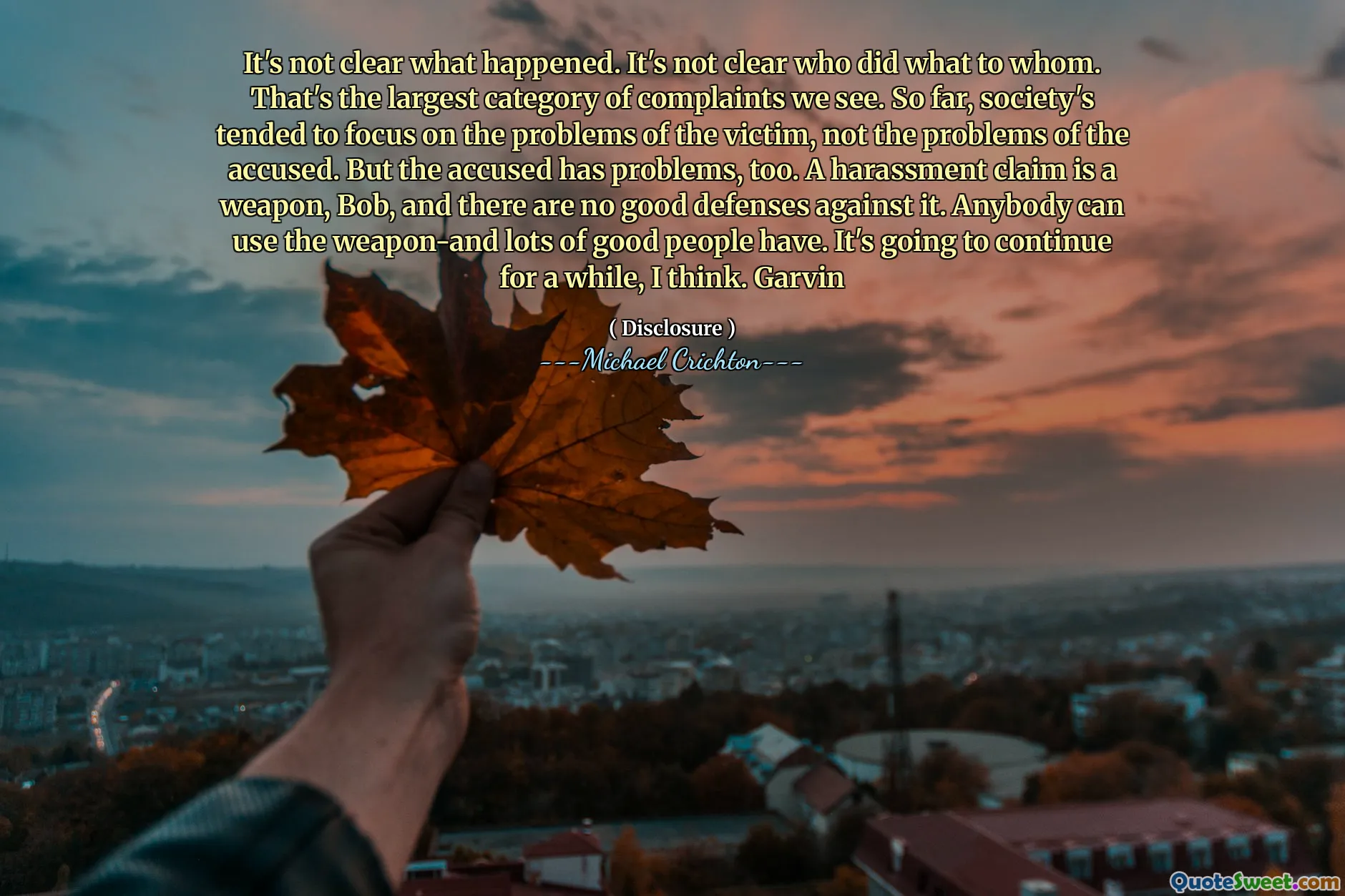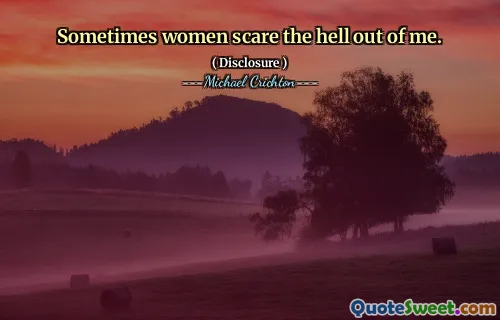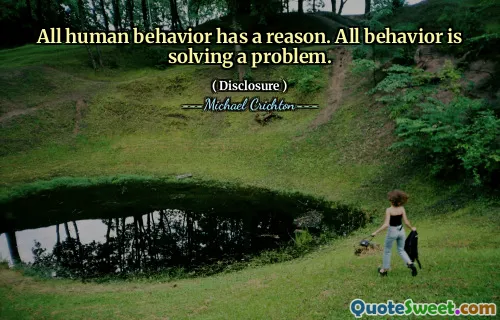
It's not clear what happened. It's not clear who did what to whom. That's the largest category of complaints we see. So far, society's tended to focus on the problems of the victim, not the problems of the accused. But the accused has problems, too. A harassment claim is a weapon, Bob, and there are no good defenses against it. Anybody can use the weapon-and lots of good people have. It's going to continue for a while, I think. Garvin
In Michael Crichton's book "Disclosure," the discussion revolves around the ambiguity often surrounding harassment claims. The narrative emphasizes that it is frequently unclear who is at fault in such situations, leading to a significant number of complaints where the details of the incidents remain murky. This lack of clarity tends to skew societal focus toward the experiences and problems faced by victims, often overlooking the complexities and challenges faced by the accused individuals.
Crichton asserts that harassment claims can be wielded as a powerful tool, likening them to a weapon that anyone can use, including well-meaning individuals who may find themselves accused. He highlights the serious implications of these claims and notes that the absence of reliable defenses leaves the accused in a vulnerable position. As such, the discourse suggests that this trend will persist, indicating ongoing challenges for both victims and the accused in navigating these sensitive and often fraught situations.











